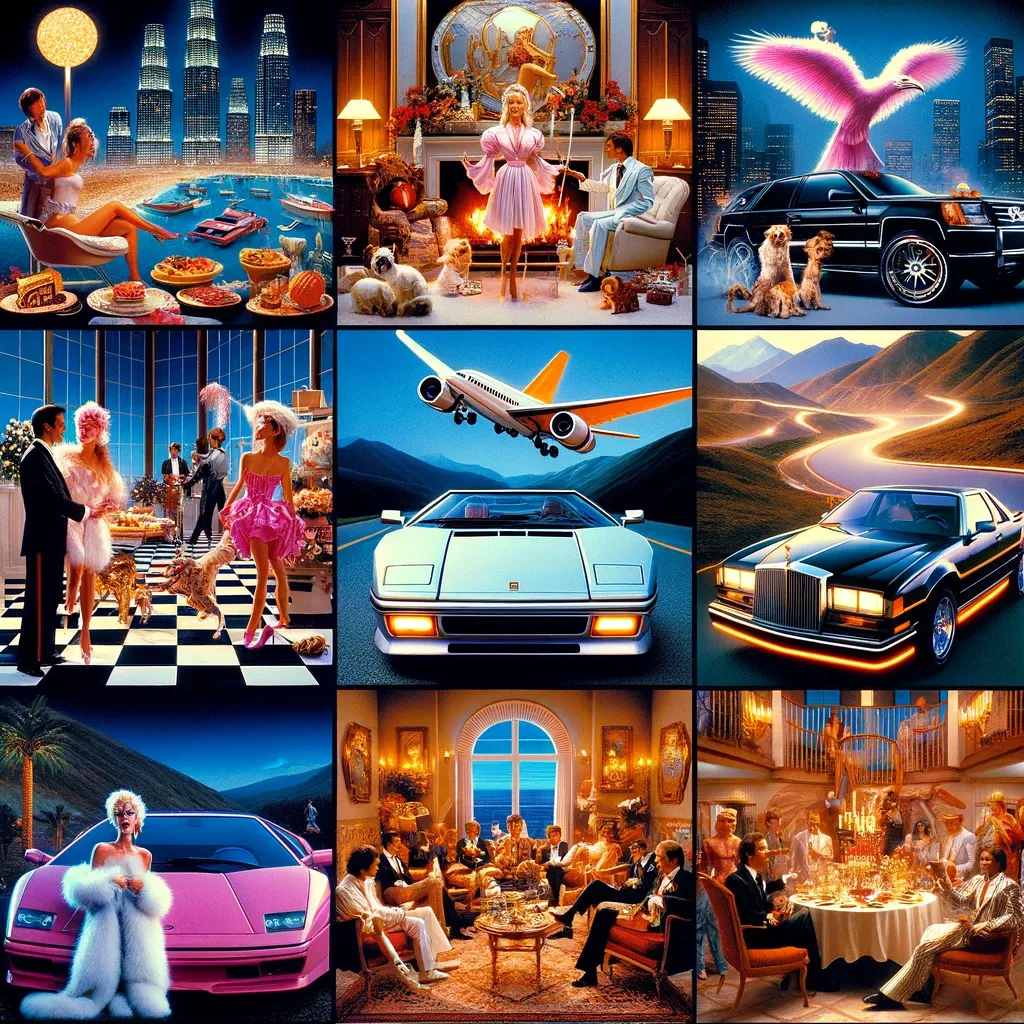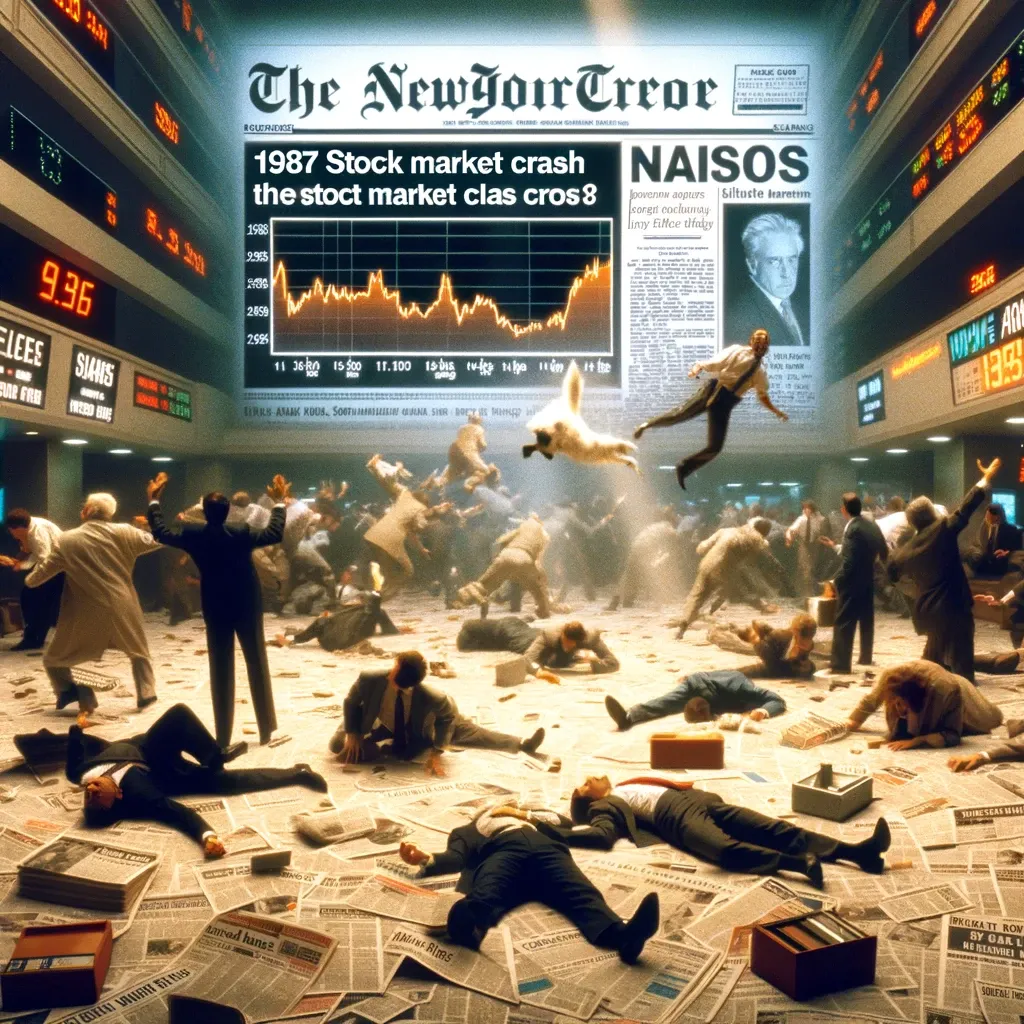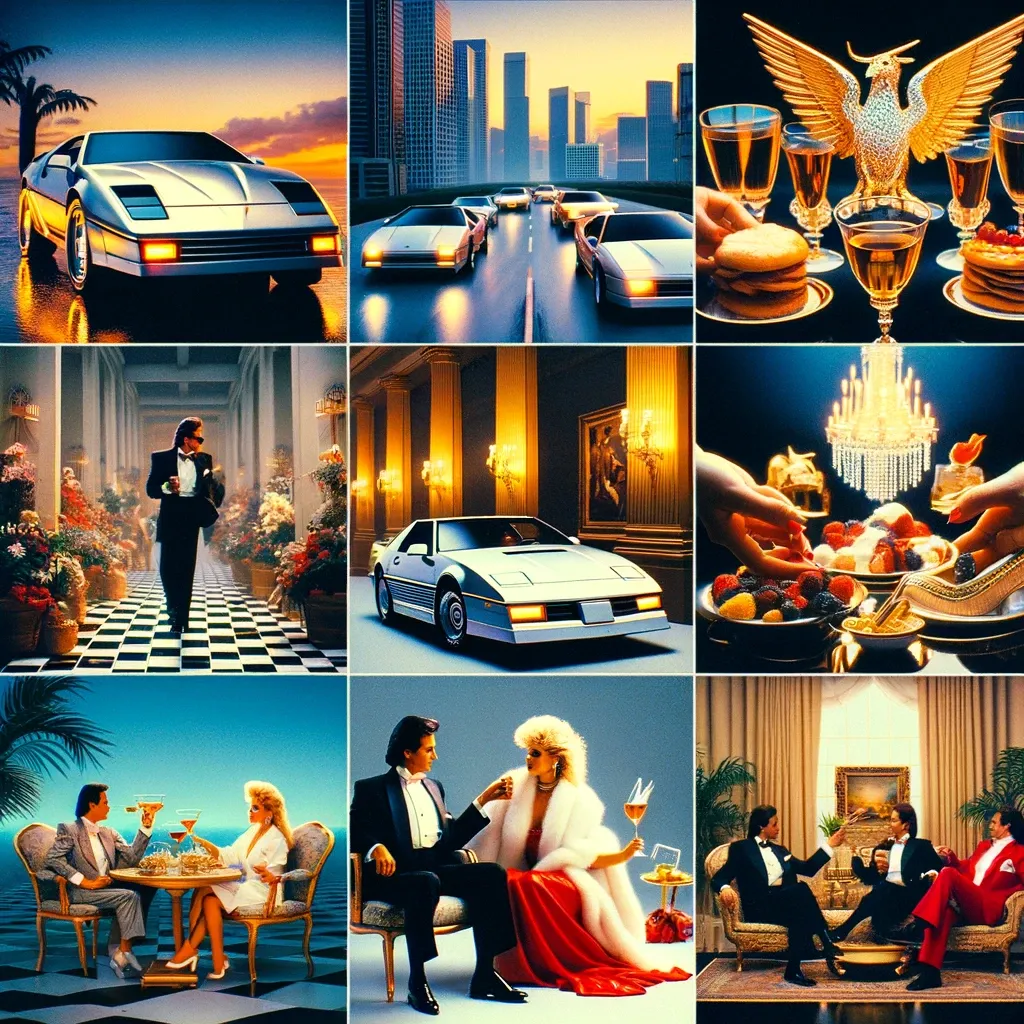The Big Money - Rush
In an era of widening inequality and concentrated wealth, "The Big Money" remains a powerful and prophetic work, inviting us to question the narratives and assumptions that grant money such outsized influence.

In their iconic song "The Big Money," Rush employs a powerful literary device by personifying money as a central character. Through vivid and evocative lyrics, the band imbues money with agency, power, and influence, highlighting its outsized role in shaping our lives, relationships, and values. By treating money as a character in its own right, the song offers a trenchant critique of the ways in which wealth can distort and dominate modern society.
In the context of 1980s popular culture, Rush's 1985 hit "The Big Money" stands out as a sharp and prescient critique of the era's rampant materialism and glorification of wealth. The song's personification of money as a soulless and empathy-devoid character contrasts starkly with the zeitgeist of the time, exemplified by works like Oliver Stone's 1987 film "Wall Street" and its infamous mantra, "greed is good."

The Glamorization of Greed The 1980s saw a marked shift in cultural attitudes towards wealth and success. The decade's ethos of conspicuous consumption, deregulation, and free-market capitalism found its embodiment in figures like the fictional Gordon Gekko, portrayed by Michael Douglas in "Wall Street." Gekko's unapologetic celebration of greed as a virtue and a driver of progress captured the spirit of an era that valorized the pursuit of wealth above all else.
In contrast, "The Big Money" offers a scathing indictment of this mindset. The song's portrayal of money as a corrupting and dehumanizing force stands in opposition to the glamorization of greed that permeated popular culture. Lines like "Big money got no soul / Big money got no heart" directly challenge the notion that the unbridled pursuit of wealth is a noble or desirable goal.

The Satire of Excess While "Wall Street" and other works of the era often reveled in the excesses of the time, "The Big Money" employs satire to highlight the absurdity and emptiness of such pursuits. The song's depiction of "the fool on television / Getting paid to play the fool" and "the old man on the corner / Building castles in the air" suggests a culture so enamored with the trappings of wealth that it has lost touch with reality.
This satirical approach aligns "The Big Money" with other works of the period that sought to critique and subvert the dominant cultural narratives. Films like "Trading Places" (1983) and "Risky Business" (1983) used humor and irony to expose the hollowness and hypocrisy of the era's obsession with status and material success.
The Narcissism of Wealth At the heart of "The Big Money" is a deep concern with the narcissistic and antisocial tendencies that often accompany great wealth. The song's portrayal of money as lacking in empathy and human connection echoes the findings of psychological research on the effects of affluence.

Studies have suggested that higher levels of wealth and status can lead to increased narcissism, decreased empathy, and a greater sense of entitlement. The song's refrain "Big money got no feelings" captures this idea, highlighting the ways in which the pursuit of wealth can lead individuals to become disconnected from their own emotions and the needs of others.
In this sense, "The Big Money" anticipates the critiques of narcissism and greed that would gain traction in the wake of the 1987 stock market crash and the excesses of the "decade of greed." The song's warning about the dangers of unchecked wealth and its effects on the human psyche remains as relevant today as it was in the 1980s.
A Prophetic Warning Ultimately, "The Big Money" stands as a prophetic warning against the cultural and psychological dangers of glorifying wealth and greed. In an era that celebrated the pursuit of money above all else, the song offers a counterpoint, reminding us of the importance of empathy, humanity, and social responsibility.

The Anthropomorphism of Money From the outset, "The Big Money" establishes money as a living, breathing entity with a will of its own. The opening lines "Big money goes around the world / Big money underground" suggest a sense of movement and agency, as if money is actively circulating through the global economy. This anthropomorphism is reinforced by subsequent lyrics that attribute human qualities and actions to money:
Big money got a mighty voice Big money make no sound Big money pull a million strings Big money hold the prize
By endowing money with a "mighty voice," the ability to "pull strings," and the power to "hold the prize," the song personifies wealth as a cunning and influential actor in its own right. This literary device serves to underscore the ways in which money can shape the course of events, often in hidden or subtle ways.
The Power Dynamic Throughout the song, the personification of money highlights the power imbalance between wealth and ordinary individuals. Lines like "Sometimes pushing people up / Sometimes pulling them down" suggest that money has the ability to control and manipulate people's lives, determining their fortunes and misfortunes.

This power dynamic is further emphasized by the chorus, which presents a litany of money's attributes:
Big money got no soul Big money got no heart Big money got no feelings Big money got no start
By juxtaposing money's immense power with its lack of human qualities like empathy and compassion, the song underscores the dangerous and dehumanizing effects of unchecked wealth. Money emerges as a ruthless and amoral character, capable of great influence but devoid of the moral considerations that should guide human action.
The Impact on Values and Relationships As "The Big Money" personifies wealth, it also illuminates the ways in which money can shape our values and relationships. The song suggests that the pursuit and attainment of wealth can lead individuals to compromise their principles and connections:
It's the fool on television Getting paid to play the fool It's the old man on the corner Building castles in the air
These lines paint a picture of people so caught up in the game of money that they are willing to debase themselves or indulge in empty fantasies. The song implies that when money becomes the dominant character in our lives, it can lead us to neglect the things that truly matter – our integrity, our dreams, and our bonds with others.
A Societal Critique Ultimately, by personifying money as a character, "The Big Money" mounts a powerful critique of the outsized role of wealth in modern society. The song suggests that when money takes on a life of its own, divorced from human values and needs, it can have a corrosive effect on individuals and communities alike.
The anthropomorphism of money in the song serves to highlight the ways in which wealth can distort our priorities, erode our social fabric, and lead us astray from our shared humanity. By making money a central character, Rush challenges us to reassess our relationship with wealth and consider the consequences of allowing it to dominate our lives and societies.
In an era of widening inequality and concentrated wealth, "The Big Money" remains a powerful and prophetic work, inviting us to question the narratives and assumptions that grant money such outsized influence. By personifying wealth as a character, the song encourages us to reassert our own agency and values in the face of money's dominance, ensuring that we remain the protagonists of our own stories.
Title: Rush's "The Big Money": A Timeless Critique of Wealth and Power
In their 1985 hit "The Big Money" from the album Power Windows, the progressive rock band Rush delivers a searing commentary on the far-reaching influence of wealth in modern society. Drawing inspiration from John Dos Passos's 1936 novel of the same name, lyricist and drummer Neil Peart crafts a multifaceted exploration of money as a force that shapes our world, for better and for worse.
The Power of Money From the opening lines, "The Big Money" wastes no time in establishing its central theme - the immense power wielded by those with wealth:
Big money goes around the world Big money underground Big money got a mighty voice Big money make no sound
These words vividly illustrate money's global reach and pervasive influence. Whether operating openly or behind the scenes, wealth has the capacity to drive significant actions and outcomes. Yet despite its "mighty voice", money often exerts its control silently, invisibly shaping the currents of society.
Peart's lyrics go on to emphasize the paradoxical nature of financial power:
Sometimes pushing people up Sometimes pulling them down Sometimes building you a stairway Lock you underground
Here, money emerges as a fickle master, capable of both elevating and entrapping individuals. The song suggests that the pursuit and attainment of wealth, while offering potential for advancement, can just as easily lead to downfall and isolation.
The Human Cost As the song progresses, Rush delves into the moral and spiritual emptiness that often accompanies great wealth:
Big money got no soul Big money got no heart Big money got no feelings Big money got no start
These haunting lines underscore the idea that money, for all its power, lacks the essential human qualities of empathy, compassion, and authenticity. The song argues that when money becomes an end in itself, decoupled from any higher purpose or meaning, it exacts a profound toll on our individual and collective humanity.
A Nuanced Perspective
Despite its scathing critique, "The Big Money" avoids simplistic moralizing. Peart's lyrics acknowledge the positive potential of wealth, referencing initiatives like the Live Aid concerts that harnessed star power and money to combat famine. The song presents a nuanced view, recognizing that money is a tool which can be wielded for good or ill.
Ultimately, "The Big Money" challenges us to grapple with the complex role of wealth in our lives and societies. It asks us to consider the values we prioritize, the systems we participate in, and the ways in which the pursuit of money can lead us astray from what truly matters. Nearly four decades after its release, the song's message feels more relevant than ever in a world of widening inequality and concentrated wealth.
Musical and Visual Innovation Beyond its lyrical depth, "The Big Money" showcases Rush's ongoing musical evolution and embrace of new technology. The song's heavy use of synthesizers, expertly programmed and performed by Geddy Lee and Andy Richards, exemplifies the band's shift towards a layered, modern sound in the mid-1980s.
The accompanying music video, with its blend of live action and cutting-edge computer animation, offers a striking visual representation of the song's themes. Images of the band performing on a giant Monopoly board, interspersed with symbolic vignettes, reinforce the notion of money as an all-consuming game with very real consequences.
A Timeless Message In the end, the enduring power of "The Big Money" lies in its ability to shine a light on the shadowy influence of wealth, inviting us to examine our own relationship to money and power. Through vivid lyricism, musical innovation, and thought-provoking visuals, Rush delivers a timeless message about the perils and possibilities of living in a world shaped by "the big money."
As we navigate an era of unprecedented wealth concentration and grapple with the social, political, and environmental challenges that follow in its wake, "The Big Money" serves as a prophetic warning and a call to consciousness. It reminds us that, while money may make the world go round, it is up to us to ensure that it doesn't lead us astray from our shared humanity and highest aspirations. In the face of "the big money," we must strive to stay true to the values and connections that lend our lives real meaning, refusing to be caught in its mighty web.


Comments ()